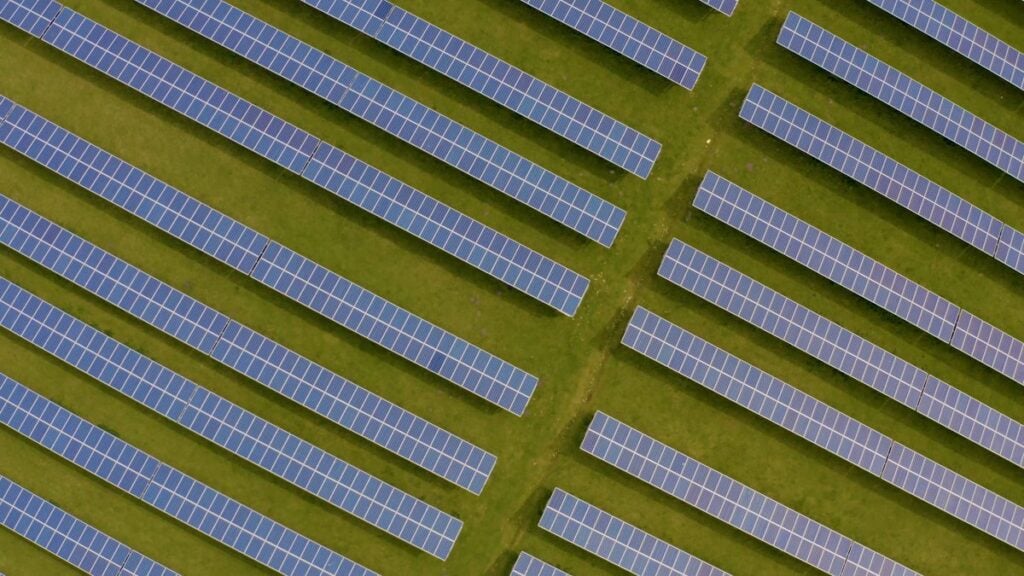
The Planning Inspectorate has accepted two utility-scale solar PV plants for examination: German power company RWE’s 320MW Peartree Hill Solar Farm in the East Riding of Yorkshire and PS Renewables and Ørsted’s 740MW One Earth Solar Farm in Nottinghamshire.
Due to their generation capacity, both are deemed nationally significant infrastructure projects (NSIPs), meaning they must seek a development consent order (DCO) before starting construction. Once the plants have been examined, the Planning Inspectorate will recommend whether to approve or reject the development, with the secretary of state having the final say.
Peartree Hill, which incorporates a co-located battery energy storage system (BESS), is set to be developed in Beverley, a market town and civil parish situated around eight miles northwest of Hull.
The proposed development will establish a grid connection via underground cables to the Creyke Beck Substation, transferring the electricity to the national electricity network.
RWE also intends to establish a community benefit fund, with £4.2 million allocated across the project’s 40-year lifespan. This will be used to support local causes and initiatives.
The German power producer concluded its statutory consultation in August 2024. Mike Greslow, project manager for Peartree Hill Solar Farm, highlighted that the team had made several adjustments to the site following feedback.
“We have listened carefully to feedback and made key improvements, including removing Land Area A, modifying access routes, and adding more permissive paths for walkers and horse riders,” Greslow said.
“We now look forward to the next stage of the process and will continue to work closely with the local community as our application enters examination.”
Plans for One Earth Solar Farm progress
PS Renewables and Ørsted’s One Earth Solar Farm could be one of the largest solar PV power plants in the UK should it be granted a DCO.
The project is one step closer to reality, with the developers having confirmed that the Planning Inspectorate reviewed the application and has now accepted it for examination. The project now moves into the ‘pre-examination stage’ in preparation for upcoming public examinations.
According to the project’s official website, the solar PV plant will integrate co-located battery energy storage, although the capacity of this has not been disclosed.
Ørsted is taking phased ownership of the project with the achievement of key milestones. PS Renewables, a construction engineering company, and Ørsted are targeting a commercial operation date for the One Earth Solar Farm before 2030.
Randall Linfoot, programme manager for Ørsted, outlined his delight at the project being accepted for examination whilst emphasising the importance of timely planning decisions for large-scale renewable energy generators.
“Projects like this will be key contributors to the UK’s energy security alongside bringing investment, low-cost electricity for consumers and helping meet global climate goals and net zero targets,” Linfoot added.

